
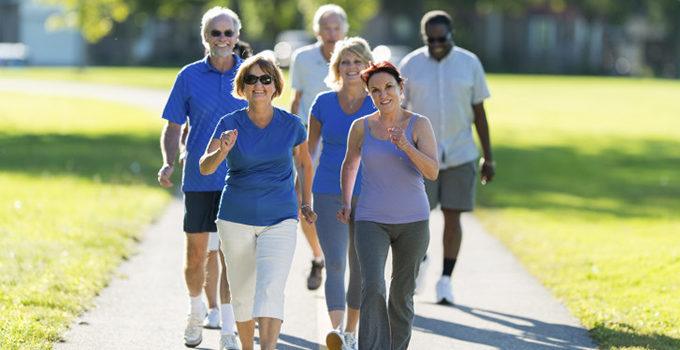
Aging Wisely
by Mahyar Pakizegee
Community connections with local organizations that share a common vision strengthen Pacific Brain Center’s positive effect helping people age more gracefully.
WHILE WE ARE NINETEEN YEARS INTO THE TWENTY FIRST CENTURY, our social and emotional needs for healthy aging remain essentially the same as ever.
Research over the past few decades shows that even though biological, physiological, and cognitive health is generally poorer with aging, people tend to be pretty satisfied in old age and experience fairly high levels of emotional well-being1.
Why is this?
By viewing aging as an adaptive process, older people are able to build up their resilience, and cultivate a sense of wellbeing to help mitigate emotional distress across later adulthood1.
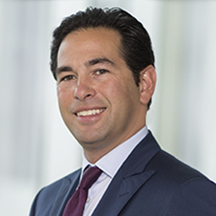
Pacific Brain Health Center geriatric medicine specialist, Scott Kaiser, MD, helps older people maximize their cognitive brain health by focusing on areas that strengthen social connections. Adapting to their life changes within a social and supportive structure can be one of the keys leading to older people succeeding in aging gracefully. The value of strong community programs in supporting health and wellbeing cannot be underestimated, he states. In addition, developing and maintaining inter-generational relationships provide wonderful stimulation. Emotional closeness and frequency of contact within families have a significant impact on inter-generational relationships and provide quality of life and family support benefits to older family members.
“Community programs play a critical role in supporting the brain’s integrity in healthy people,” says Dr. Kaiser. “Community resources and programs for older people can be extremely beneficial for the maintenance of good brain health and for the prevention of further decline for those struggling with advanced cognitive illness.”
There are many community programs available across varying needs to accommodate and personalize patient experience. For example, as Chief Innovation Officer for the Motion Picture & Television Fund (MPTF) in Calabasas, Dr. Kaiser works to improve population health and wellbeing through social and community-based interventions for older members of the entertainment industry community.
Reaching Out Into The Community
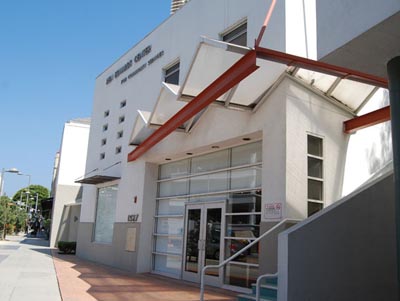
Dr. Kaiser often recommends finding a community resource that provides engagement and activities such as those found at WISE & Healthy Aging (WHA). Among its many programs designed to advance the dignity and quality of life of older adults, WHA offers a comprehensive Adult Day Service Center (ADSC) that has a wide array of programs for older people. Vice President of Community-Based Services, Phyllis Amaral, PhD, says, “WISE & Healthy Aging’s ADSC stands out as an excellent and innovative program that really does have something for everyone. It has diverse programs to support everyone’s brain health.”
Founded when WISE Senior Services and Center for Healthy Aging joined together in November 2007, WISE & Healthy Aging is a non-profit community-based organization headquartered in Santa Monica. In fact, the old location for Center for Healthy Aging was renovated in 2018 and is the present site of Pacific Neuroscience Institute at 2125 Arizona Avenue.
“In terms of maintaining brain health, certain aspects such as a healthy diet, regular exercise, good sleep, and stress management are of critical importance,” says Dr. Amaral. In addition, having a sense of purpose, and staying engaged and connected have an overall impact on how people age, she adds.
Age is not lost youth but a new stage of opportunity and strength – Betty Friedman
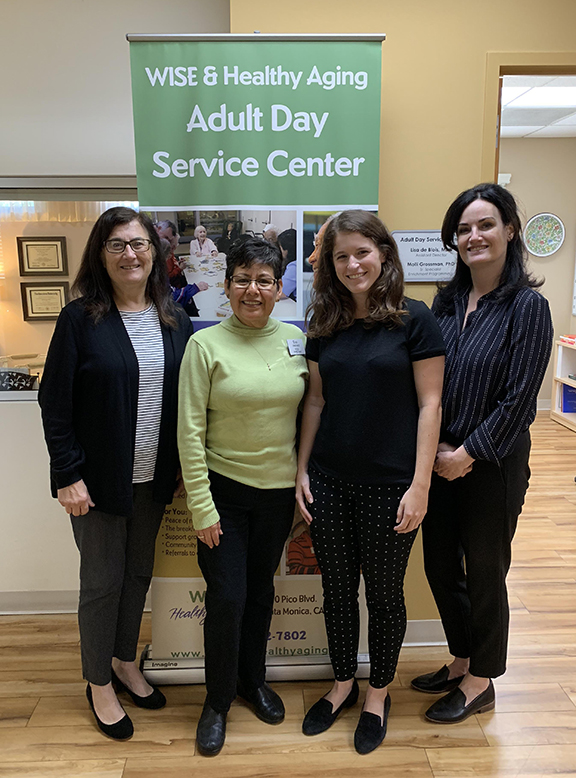
Loneliness and depression can trouble older people. Dr. Amaral advocates that having healthy social connections is one of the most important things to do to maintain good health. Especially, good brain health. In fact, social isolation and loneliness have many negative health consequences including self-neglect, insomnia, or increase in poor lifestyle choices such as smoking. “There are several studies demonstrating links between social connection and cognitive performance,” comments Dr. Amaral. “Maintaining high-quality, engaging, and meaningful relationships is one of the best things you can do for your health.”
Many activities can keep the brain cognitively challenged. Exercise classes like Zumba, qigong and yoga as well as classes for creative arts such as drawing and writing are great options. These types of programs provide personal growth while stimulating brain development. Outings to local museums, parks or other areas of interest are another way to stay engaged and active.
Peer counseling support groups help older people to connect with others who are going through a similar life experience. People dealing with issues such as loss, ill health, retirement, and other transitions can develop insight and coping skills.
If Dementia Comes On
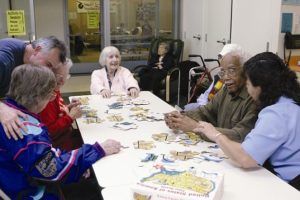
For older people who become affected by dementias such as Alzheimer’s disease, keeping a similar philosophy can go a long way to help prolong decline. WHA’s WISEMinds program for those dealing with early memory loss draws on the latest research to empower individuals. The program helps stimulate cognitive ability, prevent depression and aims to reduce stroke incidence during the early stages of dementia. Within a setting for joyful activities, social support and community to promote wellness, the WISEMinds program stimulates the body, mind, and soul. Brain exercises are implemented using computer-based Dakim sessions to help improve memory and language abilities, and strengthen attention, focus, and concentration.
“While the WISEMinds program does not prevent the decline associated with dementia or restore the abilities already lost, it plays a significant role in maximizing the capabilities of an individual with dementia through quality research,” says Dr. Amaral.
Family Caregivers Need Support
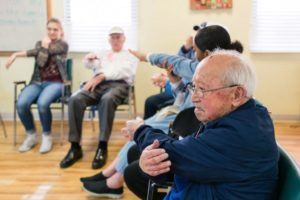
Adult day care programming can be beneficial to loved ones, especially those who are caregivers, by providing supportive services and stimulating, enjoyable activities for participants. Whether requiring mild support or more substantial help for advanced levels of Alzheimer’s disease, other dementias, Parkinson’s disease or stroke, families report that their loved ones have less depression, increased alertness, improved physical capacity, and more regular sleep patterns.
In addition, caregiving training helps family caregivers take care of their loved ones with more ease, and may be offered in multiple languages. Caregiver support groups and educational seminars can be extremely helpful and often offer free information, emotional support and references to community resources. WHA provides ongoing caregiver support services, including support groups, access to community and public resources, and nationally-recognized, evidence-based caregiver training.
Finding Resources
Incorporating community and social activities into our lives as we age encourages vitality and a sense of wellbeing that is not only good for us, but also those around us.
An Internet search can yield useful information about local programs. Here are some resources in Santa Monica and surrounding areas.
WISE & Healthy Aging
1527 4th St, Second Floor, Santa Monica, CA 90401
310-394-9871
Opica
11759 Missouri Ave, Los Angeles, CA 90025
310-478-0226
Family YMCA of Santa Monica
1332 6th St, Santa Monica, CA 90401
310-393-2721
Rotary Club of Santa Monica
PO Box 586, Santa Monica, CA 90406
310-917-3313
Santa Monica Star Newspaper
Stay in touch with local news and read the brain health related Pacific Neuroscience Institute column each month
California Association for Adult Day Services
For more information about cognitive programs and caregiver support groups at Pacific Brain Health Center, contact our specialists at 310-582-7641 or visit our website at PacificBrainHealth.org.
Reference:
1. Social and emotional aging, Susan Charles and Laura L. Carstensen

Mahyar Pakizegee is a fourth year baccalaureate student at the University of California, Los Angeles majoring in History. His goal is to attend medical school and pursue his dream of being an inspiring physician. He is a contributing author under the guidance of Dr. Garni Barkhoudarian, neurosurgeon at Pacific Neuroscience Institute.
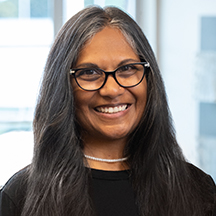
Zara Jethani, MS, MBA, is the marketing director for the Pacific Neuroscience Institute. Her background is in graphic design, molecular genetics research and healthcare marketing.
About the Author
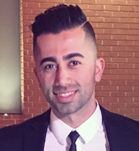
Mahyar Pakizegee
Mahyar Pakizegee is a fourth year baccalaureate student at the University of California, Los Angeles majoring in History. His goal is to attend medical school and pursue his dream of being an inspiring physician. He is a contributing author under the guidance of Dr. Garni Barkhoudarian, neurosurgeon at Pacific Neuroscience Institute.
Last updated: September 9th, 2019